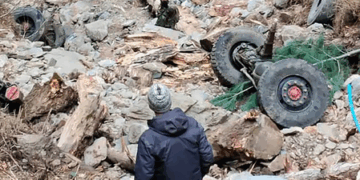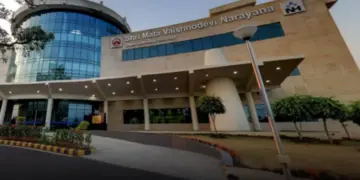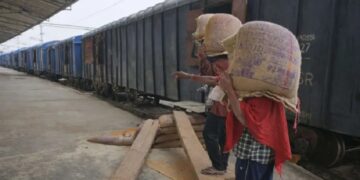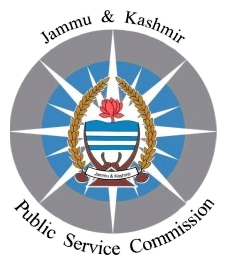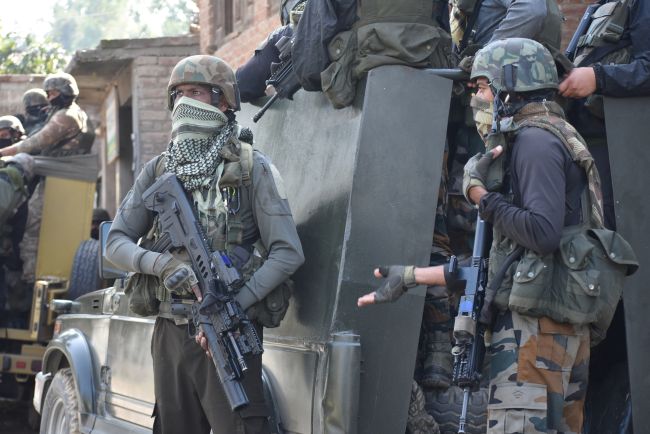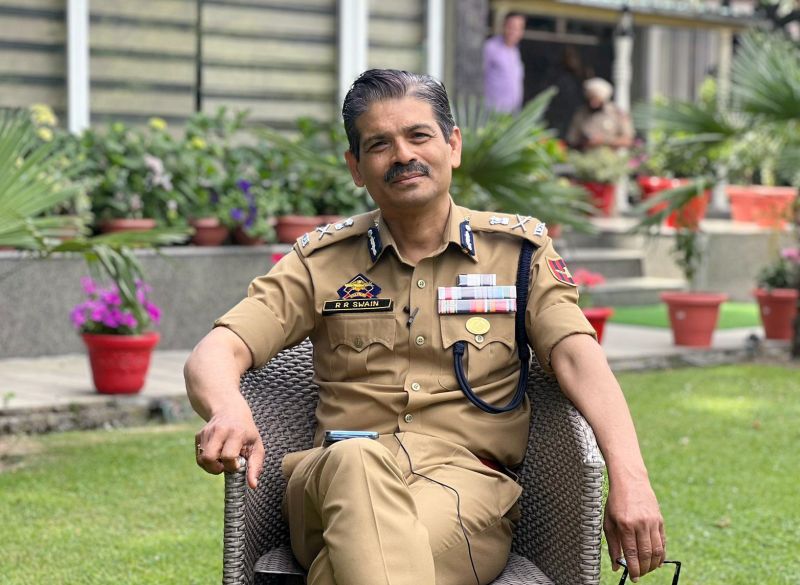Srinagar: J&K Ladakh High Court has ruled that even after the scrapping of the autonomy of the erstwhile State and the enactment of the J&K Reorganization Act 2019, it has the judicature over original civil suits.
The ruling followed a suit counselled by senior advocate Zafar A Shah that raised questions about the judicature powers on original civil matters of the J&K& Ladakh High Court after the ending of the autonomy of the state and its reorganisation by the government of India in 2019.
Justice Sanjay Dhar held “….. there is no manner of doubt in holding that this Court even after de-operationalization of the Constitution of Jammu and Kashmir of 1957, and the enactment of the J&K Reorganization Act 2019, is vested with the ordinary original civil jurisdiction as well as extraordinary original civil jurisdiction”.
The bench answered in affirmative to another constitutional question about the J&K High Court jurisdiction to entertain and decide the cases relating to arbitration in a commercial dispute of a specified value without the constitution of a Commercial Division under the Commercial Courts Act, 2015.
It ruled “all suits and applications relating to commercial disputes of a specified value filed in the High Court having ordinary original civil jurisdiction have to be heard and decided by the Commercial Division of the High Court”.
The High Court of Judicature for the Jammu and Kashmir State was established by Maharaja Hari Singh of the Jammu and Kashmir vide Order No.1 1928 AD.
In the 1939 (AD), the Maharaja promulgated the Jammu and Kashmir Constitution Act, wherein the provisions relating to High Court were incorporated.
On 28th August, 1943, Maharaja of Jammu and Kashmir granted the Letters Patent to the High Court of Jammu and Kashmir. Clause (10) of the Letters Patent provided for civil original jurisdiction of the High Court whereas Clause (11) provided for extraordinary original jurisdiction for the High Court. The same are reproduced as under:
The jurisdiction of the High Court vested in terms of Section 56 of the Constitution Act, 1939 was saved by the provisions of the Constitution of J&K, 1957.
However, on 5th August, 2019, the President of India, promulgated the Constitution Application to Jammu and Kashmir Order 2019, vide GSR 551 (E) C.O 272.
In terms of clause (2) of the aforesaid Order, all the provisions of the Constitution of India, as amended from time to time, have been made applicable to the erstwhile State of Jammu and Kashmir, meaning thereby that the Constitution of the Jammu and Kashmir, 1957, has been de-operationalized.
Justice Dhar held that the High Court of Jammu and Kashmir that was existing at the time of coming into force of the Act of 2019, is to function as a common High Court for the Union Territories of the Jammu & Kashmir and Ladakh and the Judges of the existing High Court have become the Judges of the common High Court.
Section 77 of the Act provides that the law in force on the date of enforcement of Act of 2019 with respect to practice and procedure in the High Court of Jammu and Kashmir, would apply in relation to the common High Court of Jammu and Kashmir.
The said Court he said shall have the same powers with regard to making of rules and orders with respect to practice and procedure as were immediately vested with the High Court before the enforcement of the Act of 2019.
The rules and orders in force before the enforcement of Act of 2019 with respect to practice and procedure in the High Court of Jammu and Kashmir would continue to apply unless varied or revoked.
The Justice acknowledged that there is no statutory provision in the Act of 2019, which specifically confers ordinary original civil upon the existing High Court.
He however observed the Letters Patent for the High Court of Judicature for Jammu and Kashmir issued by the Maharaja in 1943 are still in operation.
“This is so because in terms of Section 77 read with clause 2(14) of the Removal of Difficulties Order issued vide S.O.3912 (E), the law in force with respect to practice and procedure in the High Court of Jammu and Kashmir on the date of enforcement of the Jammu and Kashmir Reorganization Act, 2019, would continue to hold the field unless varied or revoked”, he said.
He continued “the Letters Patent for the High Court of Judicature for the Jammu and Kashmir issued by the Maharaja on 28th August, 1943, governs the practice and procedure in the High Court and the same was in force as on date of enforcement of the J&K Reorganization Act, 2019”.
The Letters Patent including clause (10) thereof, would, therefore, continue to hold the field unless and until the same is varied or revoked, he added.
Justice Dhar maintained that while we cannot bank upon the provisions of the J&K Constitution Act, 1939 and Constitution of J&K, 1957, so far as existence of civil original jurisdiction of this High Court is concerned, “but clause (10) of the Letters Patent is still available for vesting the ordinary original civil jurisdiction with the High Court of Jammu and Kashmir. It is to be noted that powers conferred upon the High Court under the Letters Patent are akin to the constitutional powers of the High Court”.
Therefore, when a Letters Patent grants to the High Court power to hear and decide original civil proceedings, the same would not vanish upon de-operationalization of a constitutional provision conferring a similar jurisdiction upon the High Court, he said.
Justice Dhar said that if the subject matter of an arbitration is a commercial dispute of a specified value, if such arbitration is an international commercial arbitration, all proceedings arising out of such arbitration shall have to be heard and disposed of by the Commercial Division of the High Court.
“The arbitration proceedings relating to commercial disputes of the specified value can be entertained and disposed of by the respective Commercial Courts designated in the UT of J&K”, said the bench.
Section 10 of the Commercial Courts Act clearly vests jurisdiction to hear such matters upon the Commercial Division.


